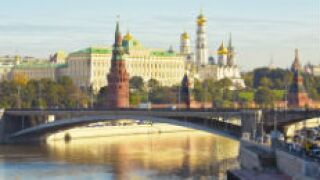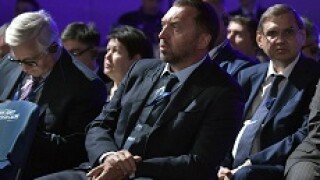Russia Sanctions
-
The decision by the US Treasury last week to designate a number of Russian oligarchs and companies as sanctioned entities, in an effort to curb the country’s “worldwide malign activity”, has transformed investor sentiment and led to buyers fleeing Russia across debt and equities, write Sam Kerr and Francesca Young.
-
Loans bankers are struggling to digest the implications of the new round of US sanctions on Russian oligarchs and companies, announced by the Treasury on April 6.
-
DCM bankers have seen an evaporation of their Russian bond business this week reminiscent of 2014 when US and EU financial sanctions were first put in place against the country. Fears of further sanctions have meant that the whole Russian bond market is under scrutiny, and pressure.
-
Risky assets are often beholden to perceptions of geopolitical risk, though in recent times that has been a minor factor in price movements. Perhaps this dynamic is about to change.
-
Rusal bondholders are in a pickle. They have been told by the US Treasury that they have 60 days to dump the sanctioned Russian company’s bonds, but trading has halted, leaving them stuck with the debt. Investors are lost as to how to value the bonds in their portfolios and are scrambling to work out how they can legally continue to hold and mark them.
-
Panic selling has hit the Russia bond complex with investors dumping securities as they race to reduce their exposure to the country for fear of further sanctions.
-
The sell-off in Russian bonds is battering emerging markets investors, who are seeing the biggest spread widening since sanctions were first imposed on the country in 2014. Not only have the bonds of freshly sanctioned Rusal tanked but other Russian companies are selling off as investors fear they may be next, and the rot is starting to spread to the wider central and eastern Europe region as well.
-
Equity investor sentiment on Russia has been upended in the space of a weekend after the shock release from the US Treasury on Friday imposing a fresh set of sanctions on Russia which has torpedoed the fortunes of aluminium producer EN+ and its owner Oleg Deripaska.








